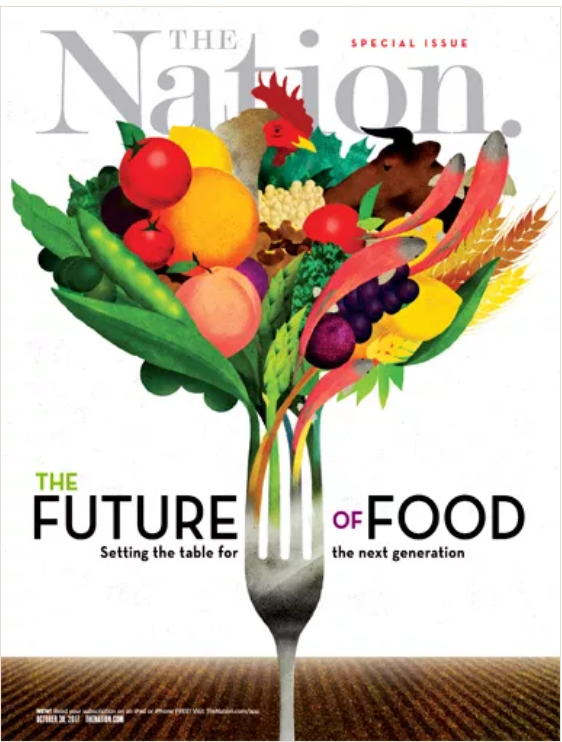I’ve been tracking recent reports and commentary about the herbicide glyphosate (a.k.a. Roundup) used with genetically modified crops. Glyphosate has been linked to cancer, a connection firmly denied by its maker, Monsanto.
Now, FERN (Food and Environment Reporting Network) and The Nation ask: Did Monsanto ignore evidence linking its weed killer to cancer?
Monsanto also hired an outside consulting firm, the Intertek Group, to orchestrate a so-called “independent” review of glyphosate’s health effects to refute the IARC’s cancer assessment. A disclosure accompanying the review, which was published in Critical Reviews in Toxicology, reported that Intertek was paid by Monsanto but claimed that “neither any Monsanto company employees nor any attorneys reviewed any of the Expert Panel’s manuscripts prior to submission to the journal.” In fact, internal e-mails indicate that Heydens and other Monsanto employees reviewed and edited drafts before the report was published. “I have gone through the entire document and indicated what I think should stay, what can go, and in a couple spots I did a little editing,” wrote Heydens [William Heydens, Monsanto product-safety strategist] in a February 2016 e-mail to Ashley Roberts, senior vice president in Intertek’s food and nutrition division. Partridge [Scott Partridge, Monsanto’s vice president for global strategy] defended the review’s independence: “It did not amount to substantial contributions, editing [or] commenting—nothing substantive to alter the scientists’ conclusions.”
This is pretty much the same story told by the journalist Paul Thacker, a few months ago.
Hints of the biotech industry’s media tactics have leaked from court cases filed against Monsanto alleging glyphosate causes cancer. Several filings reference internal Monsanto documents that describe the company’s social media strategy called “Let Nothing Go”—a program in which individuals who appear to have no connection to the industry rapidly respond to negative social media posts regarding Monsanto, GMOs, and agrichemicals. Lawyers in one case told a judge that documents show Monsanto funnels money to the Genetic Literacy Project and the American Council on Science and Health in order to “shame scientists and highlight information helpful to Monsanto and other chemical producers.”
Six countries in the Middle East vote for glyphosate as a carcinogen.
Oman’s Ministry of Agriculture has confirmed that six Middle Eastern countries, including Saudi Arabia, Kuwait, the United Arab Emirates, Qatar, Bahrain, and Oman have banned the use of glyphosate herbicides since last year, after reviewing IARC’s classification of glyphosate as a ‘probable human carcinogen’.
Researchers at Cornell find that glyphosate kills healthy bacteria in soil.
“Beneficial Pseudomonas in the soil can help crops thrive. They can produce plant-stimulating hormones to promote plant growth and antifungals to defeat problematic fungi – such as Pythium and Fusarium – found in agricultural soil, but previous studies reported that the abundance of beneficial bacteria decreased when the herbicide glyphosate seeps underground,” said Ludmilla Aristilde, assistant professor of biological and environmental engineering. “Our study seeks to understand why this happens.”
And, the European Commission is considering voting on whether to renew approval of glyphosate at its October 25 meeting.
Comment: We use a lot of glyphosate in the U.S. (an understatement). Hence: So much, that widespread weed resistance.
Maybe it’s time to start phasing it out—and soon?





 Grant Street, Chinatown, October 11, 2017
Grant Street, Chinatown, October 11, 2017
